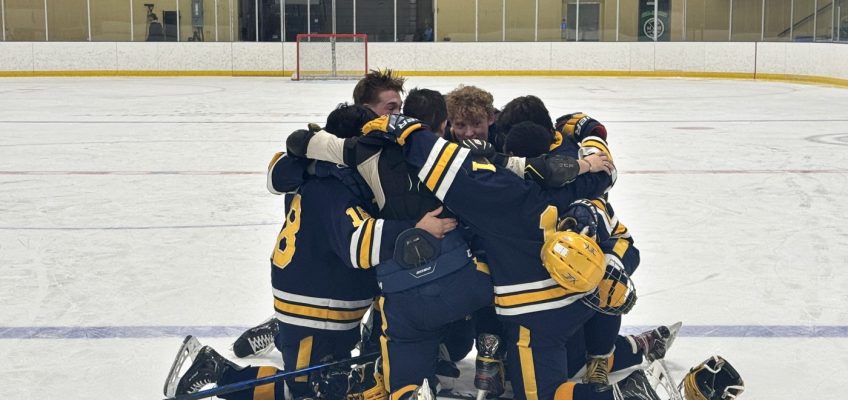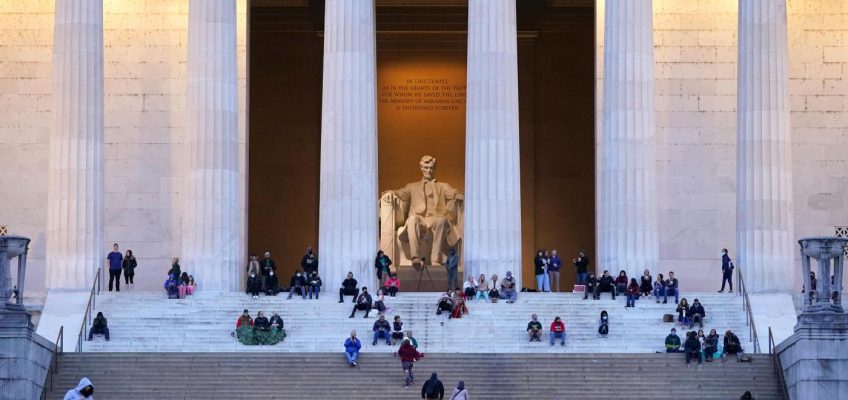By Michelle Clardie, Bankrate.com
Despite attempts at financial equality, gender continues to impact nearly every aspect of personal finance, including earning, spending, investing and consumer debt.
Men on average earn more than women, allowing them to spend, save, borrow and invest more. Women tend to be more cautious with money, which makes sense since they have less of it. Data is not as robust for transgender and gender-diverse (TGD) individuals, but emerging research shows a pattern of even greater financial strain for this marginalized group as they work to overcome prejudices and early setbacks caused by a lack of financial support that cisgender peers typically receive from family.
Whatever your gender, being aware of the role gender plays in personal finance can help you better understand your financial hurdles and those others are facing.
General differences in the finances by gender
Statistics only tell a small part of the story regarding finances by gender. Chromosomes, sex and gender expression do not affect someone’s ability to manage money, build good credit, use debt responsibly or invest for the future. However, external factors and societal pressure assigned to gender roles do have a financial impact.
Related Articles
St. Paul and Minneapolis chambers of commerce consider merger — again
How to set and invest your emergency fund
Smartphones in schools: Do they help students learn?
Teens are spilling dark thoughts to AI chatbots. Who’s to blame when something goes wrong?
Microsoft shutting down Skype in May
On average, women are still responsible for the lion’s share of family caregiving and household labor, negatively impacting their lifetime earning potential. Women also tend to suffer more severe financial consequences of divorce. By contrast, men feel socially pressured to exude wealth and status regardless of their success and frequently go into debt to keep up appearances.
Transgender individuals typically take on more debt when starting out than their cisgender peers, likely due to a lack of financial support and living accommodations provided by family. This puts transgender or nonbinary individuals in a more financially precarious position than cisgender men or women.
Earning differences by gender
After decades of progress in narrowing the gender wage gap, 2023 saw the gap widen significantly for the first time in 20 years according to the annual Income in the United States report from the U.S. Census Bureau.
Women who work full-time were paid about 82.7% of a man’s salary in 2023, down from 84% in 2022. Full-time male workers made a median salary of $66,790, while full-time female workers made $55,240. This results in a difference of $11,550 per year — a gap that only widens further for women of color, women with disabilities and women working part-time.
The median income for all American men in 2023 was $56,280, while the median for all American women was just $42,110.
Earning information specific to TGD individuals is not available.
Spending differences by gender
Spending tends to be closely correlated with income, with higher earners spending more.
The Bureau of Labor Statistics’s latest Consumer Expenditure surveys found that the average single woman spends $42,174 annually, while the average single male spends $43,299.
The breakdown of spending by category is shown below.
Type of spending
Single woman
Single man
Food
$4,899
$5,302
Housing
$17,093
$16,309
Apparel and services
$1,123
$833
Transportation
$5,170
$7,066
Healthcare
$4,131
$3,038
Entertainment
$1,899
$1,914
Single men spend more than single women on food, transportation and entertainment. Single women spend more on housing, apparel/services and healthcare.
It is worth noting that the average age of single women from the survey is 60, while the average age of single men is 52. Age is an important factor in earning power and spending habits. Cost of living, dependents, disabilities, and other considerations also influence income and expenditures.
There is no data from the Bureau of Labor Statistics breaking down income and expenses for transgender or nonbinary individuals.
Borrowing differences by gender
Experian compared debt balances among men and women and found that men carry more debt in all categories except student loans.
On average:
Men have 16.3% more auto loan debt than women.
Men have 2% more credit card debt than women.
Men have 9.7% more mortgage debt than women.
Men have 20% more personal loan debt than women.
Women have 2.7% more student loan debt than men.
Type of debt
Women
Men
Credit card balance
$6,232
$6,357
Student loan balance
$36,131
$35,188
Auto loan balance
$17,747
$20,645
Personal loan balance
$14,780
$17,716
Home equity line of credit (HELOC) balance
$42,746
$47,017
Mortgage balance
$192,368
$211,034
Consumer debt information specific to TGD individuals is not available.
Credit score differences by gender
The Equal Opportunity Credit Act largely prohibits using demographic information, including gender, in credit reporting, so it is difficult to evaluate credit scores by gender.
However, the Federal Reserve analyzed the credit scores of thousands of men and women in 2018. Its findings indicate that gender has little impact on credit scores, although the average man’s score is slightly higher than the average woman’s, controlling for age. For example, the mean VantageScore 2.0 for men aged 31–40 was 793 while the mean for women of the same age was 785. While this data is older, it’s unlikely that this disparity has changed significantly.
There is no reliable data differentiating the credit scores of nonbinary individuals.
Investing differences by gender
Women are less likely to invest than men. A study commissioned by BNY Mellon Investment Management found that if women invested at the same rate as men, there would be more than $3 trillion in additional assets under management today.
BNY cites the gender pay gap, perceived risk of investing and lack of engagement as key factors for this disparity.
Anne-Marie McConnon, Global Chief Client Experience Officer at BNY Mellon Investment Management, said: “As women, we all have different hurdles to overcome to meet our individual financial goals. Some of these are influenced by demographics and personal circumstances but some are a result of how the investment industry has traditionally engaged with women.” In fact, 86% of asset managers acknowledge that their default target customer is male.
There is no information specific to the investment habits of TGD individuals.
Financial stress differences by gender
Women are more likely to report feeling stressed by finances than men. In a recent Bankrate study, 46% of women say money issues have negatively affected their mental health, prompting feelings of anxiety, depression and stress. Only 38% of men report feeling the same financial stress.
Recent research from the International Journal of Consumer Studies found that transgender college students experience greater financial strain than their cisgender peers. According to the study, “TGD students had significantly lower financial optimism, financial self-efficacy and financial socialization than their cisgender peers.”
Discrimination in lending by gender
Legislation has been implemented to prevent lending discrimination by gender.
The Fair Housing Act of 1968 prevents discrimination in mortgage lending, specifically based on race, color, national origin, religion, sex, gender identity and sexual orientation, disability and family status. It wasn’t until 2020 that federal protections were put in place to prevent housing discrimination based on gender identity.
Additionally, The Equal Credit Opportunity Act of 1974 prohibits discrimination in all types of lending based on race, color, national origin, sex, marital status, age or participation in public assistance programs.
Before 1974, lenders were allowed to require women to have a male co-signer before approving a loan. This made it nearly impossible for women to build credit, buy homes or take out loans to start a business without a man agreeing to help them. While the act did make this discrimination illegal, prejudices from this era still carry forward.
The bottom line
Gender has no scientific bearing on your ability to manage money, but societal expectations and gender norms still affect your income potential and can pressure you to spend or borrow in a certain way. We’ve come a long way from when women couldn’t get their own credit cards and when nonbinary people could be charged more for housing, but we still have a long way to go.
Frequently asked questions
Do lenders consider gender when making decisions? No, a lender cannot consider your gender or gender identity when making decisions. The Fair Housing Act prohibits discrimination in mortgage lending, and the Equal Credit Opportunity Act prohibits discrimination in other forms of lending.
What should I do if I’m being discriminated against financially because of my gender? If you feel you’re being discriminated against financially because of your gender or gender identity, try to gather as much evidence as possible. Take notes and record conversations if you’re in a state that allows one-party consent for recordings. Try to keep communications to a written medium for better tracking. Once you’ve gathered your evidence, submit a complaint through the proper channels, depending on your situation:
For housing discrimination, including mortgage lending and rental price discrimination: File a complaint through the U.S. Department of Housing and Urban Development.
For credit discrimination including loans, mortgages and credit cards: File a complaint through the Consumer Financial Protection Bureau.
For any type of discrimination: File a report with the U.S. Department of Justice’s Civil Rights Division. Your state, county or city may also have a civil rights division where you can file complaints.
Note: Some of these may be subject to change with the Trump Administration’s changes. You may need additional research to find the best place to get help.
Key takeaways
On average, men carry more debt than women across all categories, except student loans.
The gender pay gap affects women’s ability to earn, save, invest and build wealth.
Even though women spend less and carry lower debt balances, they still feel more financial stress than men.
©2025 Bankrate.com. Distributed by Tribune Content Agency, LLC.




